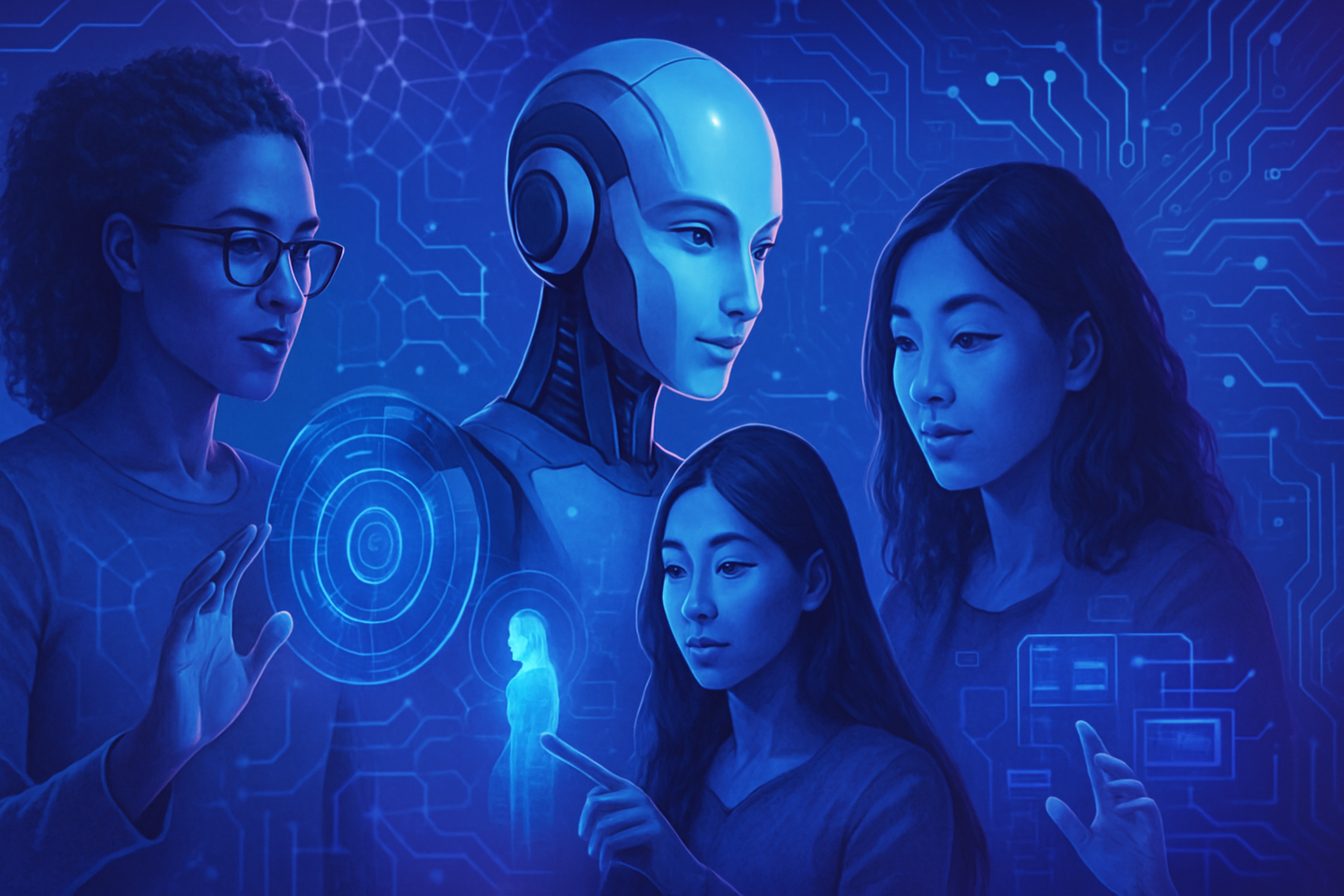Women and artificial intelligence are emerging as critical issues for the technological future. The disparity in access to AI exacerbates existing inequalities. An increased female presence in this sector is essential to ensure truly inclusive technology. Algorithms, shaped predominantly by male perspectives, generate pervasive biases. Redefining the future of AI requires active involvement from women in this digital transformation. A synergy between genders will foster innovation marked by diversity and equity.
Inequalities in access to artificial intelligence
During the conference led by Leïla Grison at VivaTech 2025, the inequalities in access to AI between men and women were highlighted. Currently, 88% of artificial intelligence algorithms are designed by men. This imbalance raises critical questions at a time when AI should be transforming the professional world and society as a whole.
The consequences of biased development
The development of algorithms driven by a predominantly male workforce leads to biased data. These biases amplify pre-existing injustices and inequalities. According to Leïla Grison, it is necessary to understand how women can integrate these technologies, as this will affect their professional future. AI promises to redefine the skills required throughout a career.
The opportunities and threats of AI for women
Leïla Grison emphasizes three main areas that impact women’s employability in the face of AI. First, the mass creation of new jobs in this sector could overlook women, who are already underrepresented in scientific fields. The urgency to increase female presence in AI professions is evident.
Next, the restructuring of jobs that are likely to be automated poses a threat. In these areas, women are often overrepresented, raising concerns about their professional future. The increase in productivity fueled by AI will benefit those who are trained. Overall, unequal access to AI risks widening the gender gap in the labor market.
The potential of AI to reduce inequalities
Conversely, artificial intelligence can be a opportunity to reduce inequalities. Grison emphasizes that this technology can accelerate women’s careers by opening doors to new professions. AI could facilitate career transitions and enhance diversification in the workplace.
Moreover, AI provides valuable support in facing daily challenges. Many women juggle professional and family responsibilities. AI tools can alleviate this burden, improving their time management.
The importance of access to AI for everyone
Access to AI for a wide audience must prevail. “AI should not be a privilege,” warns Grison. Rejecting this technology out of fear of cheating could have detrimental repercussions. Children should be encouraged to interact with AI, as mastering these tools will be essential for their future integration into the labor market.
To expand this reflection, resources such as the AI summit offer interesting perspectives. The debate on the economic inclusion of women needs to intensify to encourage their engagement in this field.
FAQ on Women and Artificial Intelligence
Why is it important to include more women in the development of artificial intelligence?
A greater inclusion of women allows for a diverse perspective, which can lead to more equitable and less biased solutions in AI development. It also helps to counter existing gender stereotypes in technology.
What are the main obstacles to women’s access to careers in AI?
Obstacles include gender biases, underrepresentation in STEM fields, and a lack of female role models in leadership positions within tech companies.
How can artificial intelligence help reduce gender inequalities?
AI can create new job opportunities and facilitate access to resources that enable women to train and advance in their careers, particularly in areas where they are traditionally underrepresented.
What roles can women play in the ethical development of AI?
Women can provide unique insights regarding the social impact of AI, help identify and mitigate biases in algorithms, and promote more inclusive practices within development teams.
What initiatives exist to encourage women to enter the AI sector?
Mentoring programs, scholarships specifically for women in technology fields, and networking platforms are some of the initiatives in place to incentivize women to join the AI sector.
How can AI support women juggling professional and family responsibilities?
AI can offer solutions to automate certain tasks, improve time management, and provide supportive tools that help women better balance their professional and personal lives.
What skills are necessary for women wanting to enter the AI field?
Key skills include programming, data analysis, critical thinking, as well as knowledge of AI ethics and project management. A willingness to learn and adapt is also essential.
How can companies promote gender equality in AI teams?
Companies can implement inclusive hiring policies, encourage parity within teams, offer professional development programs for women, and create a work environment conducive to diversity.
Are women adequately represented in strategic decisions related to AI?
Currently, women are underrepresented in these decisions, with only 33% of leaders having women in key roles related to AI strategies. It is crucial to increase this representation to ensure diversity in strategic perspectives.






